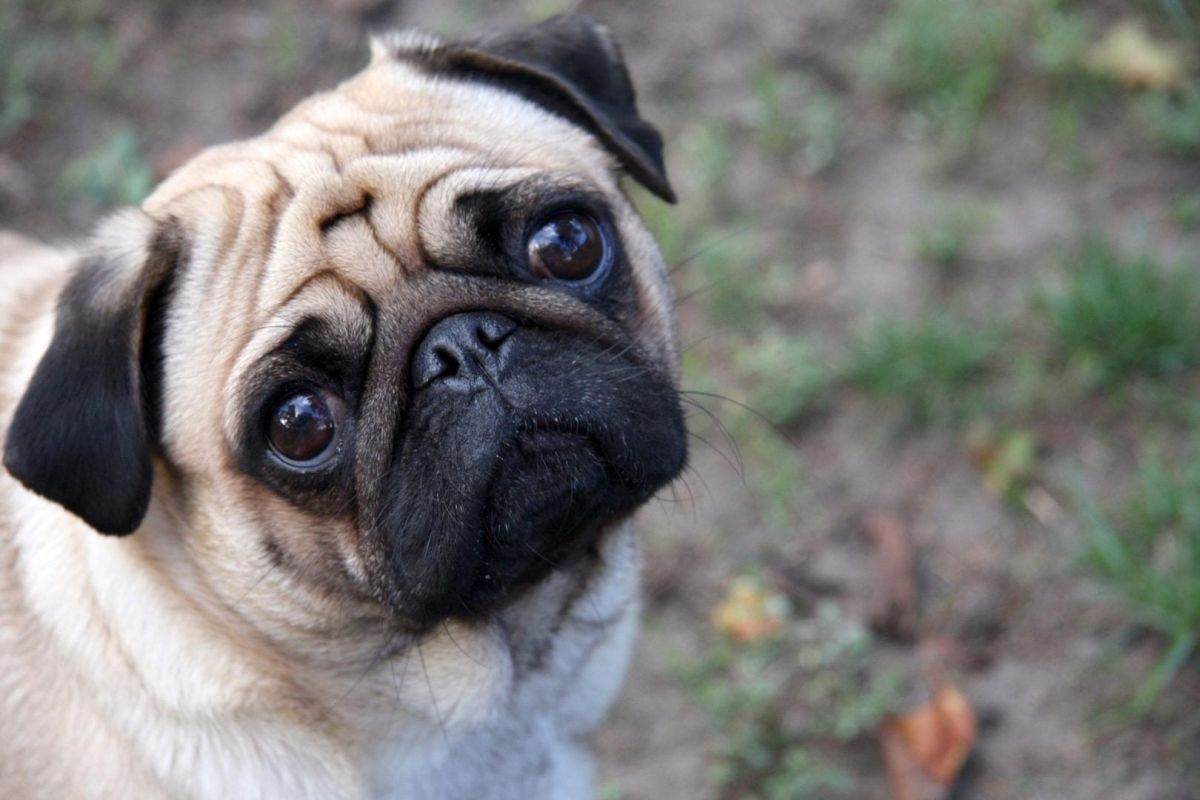
We love pugs. More than 10,000 are waddling around in the UK at the moment, and the Chinese New Year of the Dog gives us admirers the perfect opportunity to show appreciation for the pug’s squashed nose and dislocated kneecaps. A celebratory pop-up Pug Cafe in Manchester has already clocked in the interest of more than 600 dog lovers on Facebook, who will no doubt flock on the day to fawn over the beauty of the pugs and profess to each other just how much they love dogs.
We love pugs so much that we’ve inbred 10,000 British pugs from a gene pool of only 50. We apparently love them so much that they suffer acute problems as a consequence of our love.
Let’s be clear: this is not love for the dog, but the fetishisation of its individual body parts.
In 2008, a BBC documentary uncovered a line of Crufts pug champions with numerous health problems characteristic of the breed: dislocated kneecaps, collapsed larynxes, elongated soft palates, narrowed nasal cavities, inward rolling of lower eyelids, and curvature of the spine. Spine abnormalities are bog-standard in pugs— in fact, they’re the breed standard. Double-corkscrews are desired in pugs’ tails, which contort pugs’ vertebrae to put their whole spinal structures at risk.
RSPCA Chief Vet Mark Evans called the Crufts show “a parade of mutants”, and, “a freakish, garish beauty pageant that has frankly nothing to do with health and welfare.”
But we love their funny looks. We love tagging friends in videos of pugs falling asleep while sitting or standing— which they do because their airways close when they drop their heads. We love them. We love the noises pugs make as they struggle for breath and their eyes that are too big for their sockets to contain. They’re cute; breeding is a business of cuteness, and that must be a delight.
The commodification of dogs as style items is a recent, capitalist phenomenon. The Kennel Club is less than 150 years old, and most modern dog breeds are younger than this. Before then, dogs weren’t bred in Britain for their appearance. It was when dogs made the move from the farm to the armchair that breeding for functionality was dropped to focus on fashionable aesthetics.
As a result, health was compromised to achieve deformities. The German Shepard Dog of today looks very different from its Victorian forefathers; it now also comes with a good dose of canine hip dysplasia.
The Kennel Club’s small efforts to reduce the occurrence of genetic defects are meek. They certify German Shepards whose parents are clear from hip dysplasia, but breeders easily worm round this by breeding young dogs who are less than a year old before their genetic defects start showing. And so, thousands of sick puppies get born and sold with clean certifications of health from the KC.
This doesn’t even consider the uncertified puppy farms, which notoriously over-breed females in inhumane conditions. These only arose after World War Two, and have grown into a multi-billion pound business in the UK alone. Meanwhile, 20,000 rescue dogs are euthanised in UK shelters every year. Rather than adopt them, we shell out thousands of pounds to buy pedigree dogs from breeders, whose genetic defects cost UK dog owners over £10 million in vets’ fees each week.
On the other side of the world, in China, street dogs are beaten to death on a daily basis. In Oman, the police are ordered to shoot puppies on sight. Romania runs state internment camps for dogs where they aren’t fed and are destroyed after 14 days. This all might seem depressing, but none of our concern over here in the UK.
Shelters abroad, however, run multifarious programmes— such as Barking Mad Dog Rescue — that allow British citizens to adopt dogs from life-threatening situations around the world. This might be a more popular system if foreign-adopted dogs were as Instagrammable as their inbred cousins.
As it is, pugs are our trending fashion choice of the moment, and their lives aren’t much better than street dogs’. Pug breeding is animal cruelty, and without knowing it, we’re wooed into complicity by their big buggy eyes and asphyxiating muzzles.
It’s hard to imagine an aesthetic as sweet as the pug’s could possibly be so barbaric. That’s the first step we need to take: changing our perspective of the pug from the aesthetic to the animal.
This Chinese New Year, for the Year of the Dog, we need to each take some time to address ourselves — when we say we love dogs, do we mean it? Or do we only mean that we love how they look?







